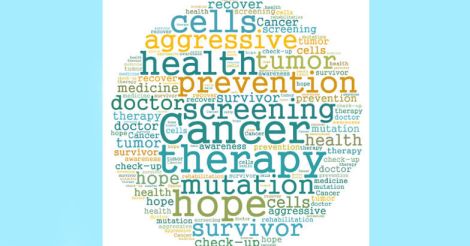Times have changed, yet cancer is still widely misunderstood.
The common perception is that it cannot be completely cured, treatment such as radiation and chemotherapy will lead to scalding and loss of hair, etc.
Many still consider cancer, once confirmed, is the end of the road and some others even end their lives.
The truth is far from the common perception. Chances of curing cancer are now more than ever, and one out of three patients can be completely cured.
Additionally, once detected, patients now have an extended lifespan than it was earlier.
During the 1960s, it was believed cancer in children could not be cured: today, 65 percent of such cases could be cured.
Compare cancer with other diseases. Those with acute liver cirrhosis seldom live beyond two years; in not so acute cases, the lifespan is normally five years.
Diabetes, high blood-pressure, heart conditions and renal diseases prolonged difficulties and at times, lead to death.
Yet, people fear cancer more.
Modern chemotherapy and radiation treatment using computer technology have increased the success rate of cancer treatment, besides reducing the side-effects.
The disease, once rare, has now become common, necessitating a different approach. We need decentralized cancer treatment centers rather than centralized ones.
The treatment should begin at the grassroots-level itself. Primary health centers (PHCs) should be equipped to treat cancer and also to provide palliative care.
Doctors and technicians at regional centres should be trained to tend to cancer patients. This would help in the early detection and prevention of the disease.
So, what then would be the role of institutions such as the Regional Cancer Centre? They should focus more on research, besides providing expert training and setting guidelines to treat the disease.
Institutions at the region-level should have provisions to provide palliative care. The MBBS syllabus should include treatment for cancer and palliative care.
Earlier, treatment for cancer was provided by government-run institutions. It has changed. Several private players that have entered the scene are mostly profit-oriented, but often operate under the cover of charity.
The need of the hour is free and easily available treatment in the public sector.
The term, cancer, is de-motivating and one that weakens the willpower. Today, a leprosy patient is not called a leper. Instead, such a person is someone suffering from Hansen’s disease.
(The author is an Associate Professor at Thiruvananthapuram-based Regional Cancer Centre’s Gastro and Lung clinic).

























